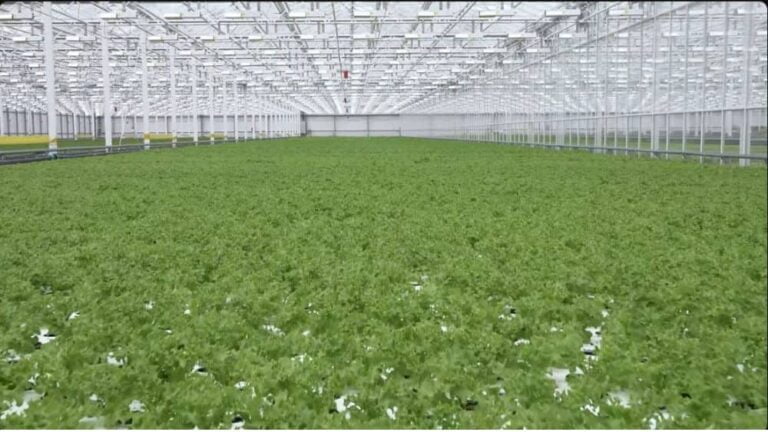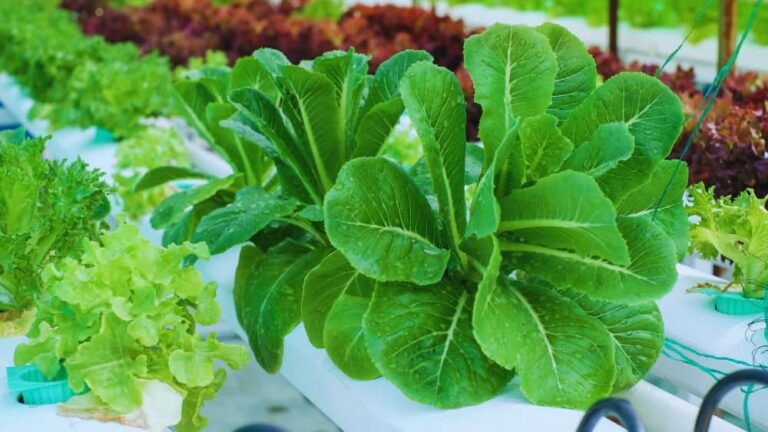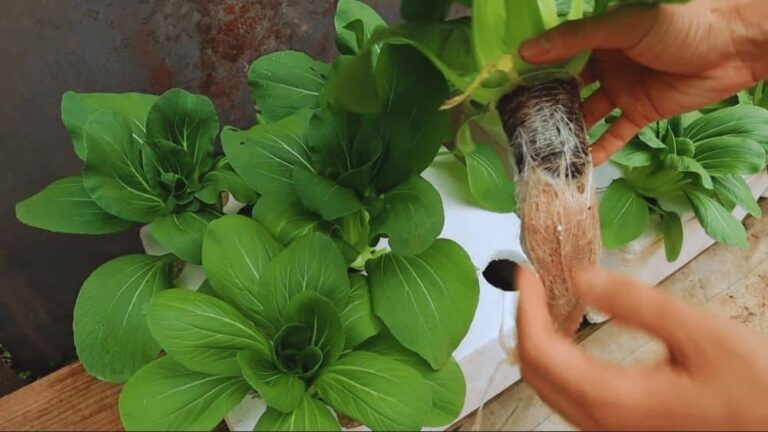Hydroponics Benefits and Drawbacks: Is It Right for You?
Have you heard of hydroponics? It’s a way to grow plants without soil, and there is an increasing interest in it with small-home gardeners and large-scale growers. This method has both advantages and disadvantages, so it’s natural to wonder: “What exactly is hydroponics, and is it the right fit for me?”
This blog post explores hydroponics benefits, the different systems you can use, and the potential challenges you might encounter. By the end, you’ll have all the information you need to decide if hydroponics is the right choice for your gardening journey.
Hydroponics Explained (for Beginners)
A. Different Hydroponic Systems
Ready to ditch the dirt? Hydroponics offers exciting possibilities for growing plants without soil. But with different systems available, it can feel overwhelming. Let’s break down the top 3 methods to choose the right fit:
- Deep Water Culture (DWC): Imagine your plants chilling in a constantly refreshing bath of nutrients and oxygen. Perfect for beginners, DWC offers easy access to everything plants need to thrive.
- Nutrient Film Technique (NFT): Picture a flowing river of nutrients gently caressing your plants’ roots. NFT provides continuous access to nutrition, which is ideal for fast-growing crops.
- Ebb and Flow: This system mimics nature’s rhythm. The growing area is flooded with nutrients, then drains, allowing the roots to breathe between sips—perfect for a variety of plants.
B. Benefits of a Controlled Environment
Hydroponics offers precise control over light, temperature, and nutrients. It allows you to create an ideal environment for your plants, fostering better growth and health. Unlike traditional gardening, where conditions vary, hydroponics minimizes these inconsistencies.

Advantages of Hydroponics
Hydroponics offers an innovative way to cultivate plants and for an excellent reason! Here’s how it benefits you:
- Faster Growth, Increased Harvests: Plants thrive in hydroponic systems due to direct access to nutrients and ideal growing conditions, resulting in faster growth and higher yields than traditional soil gardening.
- Water Whiz: Using hydroponics saves 90% of water! The secret? Recirculating systems that reuse water and minimize waste.
- Nutrient Control Freak: Forget the guesswork! Plant roots receive precise amounts of nutrients directly from hydroponic systems, maximizing plant health and eliminating imprecise soil feeding.
- Pest and Disease Defense System: Say goodbye to soil-borne nasties! Hydroponics minimizes the risk of pests and diseases typically found in soil, leading to healthier plants and potentially reducing reliance on chemical pesticides.
- Urban Oasis: Cramped city living? No problem! Hydroponic systems can be set up indoors, on rooftops, or even in small backyards, making fresh produce possible for urban dwellers.
- Community Harvest: Hydroponics empowers communities! These systems can be established as collaborative projects to boost food security and provide fresh produce in areas where access to vegetables might be limited.
Simply put, hydroponics provides an eco-friendly and efficient way to produce nutritious food. The technology not only benefits individual gardeners but also revolutionizes agriculture, especially in areas where traditional methods struggle.
Why Hydroponics is Bad?
Hydroponics offers exciting benefits, but it’s not for everyone. Here’s a reality check to help you decide:
- High Startup Costs: Tanks, pumps, lights, and nutrients can add up quickly. Be prepared for a bigger investment than traditional gardening.
- Learning Curve: Hydroponics requires knowledge of system mechanics, nutrient needs, and ideal plant conditions. Research is essential.
- System Vulnerability: A pump failure or power outage can harm your plants. Consistent monitoring and maintenance are critical.
- Waterborne Disease Risk: Reduced soil-borne diseases come with a trade-off: waterborne threats. Regular cleaning and disease checks are crucial.
- Electricity Dependence: Lights, pumps, and other components rely on electricity, which impacts your energy bill and poses a risk during outages.
- Limited Plant Selection: Not all plants thrive hydroponically. Leafy greens and herbs excel, but larger options, like fruits and root vegetables, may struggle.
Hydroponics demands more effort than soil gardening. Weigh the challenges against the benefits to see if it aligns with your gardening goals and resources.

Exploring the Pros and Cons of Hydroponics vs. Soil Gardening
To further clarify the decision-making process, here’s a comparative table analyzing the advantages and disadvantages of hydroponic versus soil gardening:
Aspect | Hydroponics | Soil Gardening |
Water Usage | Up to 90% more efficient | Requires significant amounts of water |
Yield | Higher yields due to controlled conditions | Yields depend heavily on environmental factors |
Maintenance | High (system monitoring, nutrient management) | Moderate (weeding, soil cultivation) |
Startup Cost | High initial investment | Lower cost, basic gardening tools required |
Skill Level Required | Technical knowledge is needed | Basic gardening knowledge is sufficient |
Energy Usage | High due to dependency on electrical components | Low, unless supplemental lighting is used |
Pest Management | Reduced pests risk, no soil-borne diseases | Higher risk of pests and diseases |
Crop Variety | Limited to mostly leafy greens and herbs | Wide variety, including root vegetables, fruits, and flowers |
This comparison outlines the pros and cons of different gardening methods, helping you choose the right fit for your needs.
Hydroponic Benefits and Outcomes
Hydroponic gardening offers exciting advantages over traditional soil-based methods. Let’s explore these benefits and how they translate into real-world success:
What Makes Hydroponics Special
- Seasons? Irrelevant: Grow delicious, fresh produce all year, no matter the climate.
- Space Saver: Hydroponics fits tight spots. Stack plants vertically for maximum yield.
- Perfect Conditions: Tailor light, temperature, and nutrients to your plants’ exact needs for optimal growth.
- Resource-Friendly: Conserve water and reduce harsh chemical requirements.
- Grow to Fit: Scale your system from a windowsill herb garden to a commercial operation.
Real-World Success Stories
- Vertical Farms: Companies like AeroFarms and Plenty grow massive amounts of food indoors in urban settings.
- Community Power: Hydroponic community gardens (like Denver’s GrowHaus) offer fresh produce and empower local neighborhoods.
By harnessing hydroponics’ benefits, growers can overcome traditional limitations and contribute to a more sustainable and resilient food system.
Hydroponic Drawbacks and Solutions
Hydroponics offers advantages, but challenges must be addressed. Here’s how to overcome common obstacles:
- High Costs: Start with DIY systems or basic setups before going large-scale.
- Technical Knowledge: Utilize online resources, workshops, and forums to learn.
- System Failures: Have backup power and perform regular maintenance.
- Waterborne Diseases: Prioritize hygiene and water quality monitoring.
- Electricity Dependence: Consider solar power to reduce costs and grid dependency.
- Limited Crops: Experiment with different varieties and consider adding soil gardening.
By tackling these challenges, you’ll maximize hydroponic farming benefits.

Is Hydroponics Right for You?
Hydroponics offers advantages, but it’s imperative to see if it fits your needs. Consider these factors:
- Space: Limited outdoor area? Hydroponics thrives indoors and in small spaces.
- Budget: Hydroponics requires upfront costs. Weigh these against the long-term benefits.
- Experience: Comfortable with technology and learning new methods? Hydroponics has a learning curve.
- Crops: Want to extend beyond leafy greens and herbs? Hydroponics can be limited.
Tip: Beginners should start small with lettuce and herbs to gain hydroponic skills.
The Choice is Yours: Hydroponics is an excellent way to garden sustainably. Consider whether your time, money, and learning are worth it!
FAQs
What plants are suitable for hydroponics?
Choose fast-growing, high-yielding plants:
- Leafy greens (lettuce, spinach, kale)
- Herbs (basil, mint, and cilantro)
- Small fruits (strawberries, tomatoes)
How much maintenance does a hydroponic system need?
While low-maintenance isn’t the word, here’s what to expect:
- Monitor: Nutrient solution, pH levels, and water quality
- Inspect: Plants for disease/deficiencies
- Clean: Keep the system clean to prevent algae and pathogens
Are hydroponics environmentally friendly?
Yes! Hydroponic gardening offers these advantages:
- Conserves water and land
- Reduce pesticide use
What are the main advantages of hydroponics?
- Control: Precisely manage the growing conditions
- Versatility: Grow where soil isn’t suitable (indoors, urban areas)
- Reduced Threats: Lower pest and disease risk
How much does a hydroponic garden cost?
Costs vary greatly.
- Basic kits: A few hundred dollars
- Large, complex systems: Several thousand dollars
Consider long-term benefits like year-round produce and higher yields to justify the costs.
What are hydroponic challenges?
- Nutrient management: Requires careful monitoring
- Waterborne disease: Prevention is key
- Environment: Maintaining ideal conditions is crucial
These challenges are manageable through education, regular maintenance, and ongoing system monitoring.
XI. Conclusion
Hydroponics offers an efficient alternative to soil gardening, ideal for urban environments and year-round harvests. It excels at water conservation and yield potential but requires upfront investment and technical knowledge.
Choose hydroponics if you have the space, budget, and interest in a more technical approach. Soil gardening is easier for beginners.
Begin with a limited setup to understand the system before expanding. It minimizes risk and allows for experience.
The benefits and productivity of hydroponic gardening are numerous. This guide will help you choose the right method. Explore further and discover gardening’s future!

Meet Milan Cole, your urban gardening pro!
Milan Cole, chief content writer at Maven Gardening and an urban gardening expert, is passionate about helping city dwellers cultivate their green thumbs. Armed with extensive horticultural knowledge, Milan provides practical advice for overcoming urban gardens’ challenges, like limited space, water scarcity, and reduced sunlight.
His expertise extends beyond traditional methods, encompassing innovative approaches like hydroponic and aquaponic systems and sustainable gardening practices. Milan skillfully adapts these techniques to urban environments, considering factors like pollution and climate change.
In his clear and concise writing, Milan offers actionable solutions for anyone wanting to bring life to an urban space. He shares valuable insights into growing herbs in tight spaces, maximizing the potential of window boxes, and transforming even the most miniature balconies into thriving green oases.
Milan’s guidance is straightforward and practical, making it ideal for anyone looking to cultivate their own urban garden, regardless of prior experience.
Join Milan Cole on your journey to metropolitan Eden!
